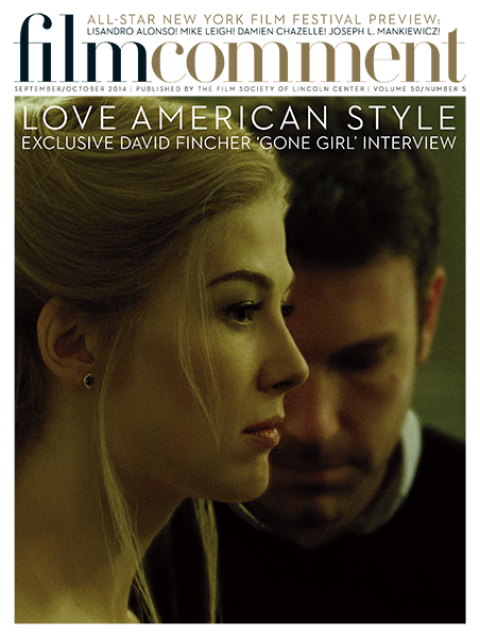
Philip Lewis Friedman, the arrogant, profoundly embittered protagonist of Alex Ross Perry’s third feature, is a writer of talent. His ability to perform as a novelist is rarely open to doubt because Listen Up Philip, despite its careful attention to the tone and texture of the literary life, is not a film about artistic creation. The hard-fought business of influence; the rifts and eddies of inspiration; the process of shaping a sentence into a kind of musical phrase; the painstaking working-out of character, plot, tone, setting, and theme: the movie deals not with these writerly gifts but with the consequences of wanting them too badly, or using them too often and too well. The disgruntled novelist’s wife in Philip Roth’s The Ghost Writer—of which Perry’s film is a loose adaptation in all but name—could have been referring to Friedman or Ike Zimmerman, his much older, equally miserable mentor, when she says, of her husband, that “not living is what he makes his beautiful fiction out of.”
“Not living” was also one of the main preoccupations of Perry’s first two features: evasive, long-winded shaggy-dog stories that culminated in emotionally potent monologues on which, it seemed to me, neither film was fully equipped to follow through. Listen Up Philip carries over several of the stronger aspects of Impolex (09) and The Color Wheel (11)—their resourceful use of 16mm film stock; their tight, luminous close-ups (Perry’s three features have all been shot by Sean Price Williams); their delightfully skewed comic timing; their prickly, belligerent attitude towards male-female relationships—while avoiding many of their faults, thanks in part to its remarkably intelligent writing and in part to its considerably sharper narrative structure.
The first and final quarters of the movie belong to Philip (Jason Schwartzman), who enters the film a rising star on the New York literary scene and leaves it, fastidious haircut and facial scruff intact, a creative writing adjunct at a fictional upstate college, having condemned himself—a gutsy closing voiceover tells us—to a life of professional success and social isolation. The third section is reserved for the failed relationship that Ike (Jonathan Pryce) has with his grown daughter (Krysten Ritter) and to his first, unwelcome bouts of late-life introspection—a vision, we’re led to believe, of Philip’s future.

It’s the movie’s second quarter, which lingers with Philip’s abandoned photographer girlfriend Ashley (a terrific Elisabeth Moss) as she transforms from a victim of his deep-seated narcissism into its most successful conqueror, that stands out in retrospect as Listen Up Philip’s emotional core. That it also contains much of the film’s least inspired writing and some of its lumpiest pacing is oddly fitting. The film feeds off Philip’s tart anti-energy; it helps that Schwartzman, in what might be the performance of his career, gives an exhilarating charge even to his ill-tempered sulks. The Ashley-focused section of the film is Philip’s lesson, the charge to which he must—as the title suggests—listen, but it’s invariably more entertaining, at least on our part, to listen to him than on his behalf.
Many, no doubt, will be inclined to take Listen Up Philip as a thinly veiled personal confession from a director still somewhat at odds with his own small-scale success. But the film works best as a picture of one self-excoriating satirist (Perry) channeling another (Roth). Philip exchanges Nate Zuckerman’s chief hang-up in The Ghost Writer—he wants at once to reject his family’s bullying Jewish pride and prove himself a worthy Jew—for a more Gentile-friendly neurosis: the familiar opposition of an Artist against the World. But Perry skillfully, sometimes brilliantly carries over at least one distinctly Jewish feature of Roth’s humor: his tendency to give certain characters the authority of wise men and then expose them, by a series of painful, humiliating, and essentially comic reversals, as fools. The joke, in this case, is that the writers we turn to for guidance are often singularly incapable of guiding themselves. (A Woman’s Point of View, which is the title of one of Ike’s books, is precisely the thing he lacks as a man.) And this joke—like most of Perry’s best—doesn’t spare the teller.








